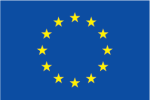As it has been noted in one of the earlier posts, some very important research integrity issues fall within the category of ‘grey zone areas’ or “questionable research practices” that are not usually penalized in contrast to the practices involving fabrication or falsification of study results. These “questionable practices” are the most complex ones and they require a further analysison what responsible conduct of research actually is and how the “grey zone areas” should be reflected in normative guidelines.
So-called “honorary” or “undeserved” authorship is one of these complex integrity issues where legal and ethical considerations are closely intertwined. Its socio-cultural complexity is reflected in the metaphorical vocabulary used to distinguish between different contexts and subtypes of this phenomenon. The terms, such as “gift”, “guest” or “coercive” authorship have been used to describe different features and contexts where honorary authorship emerge.


Leave a Reply